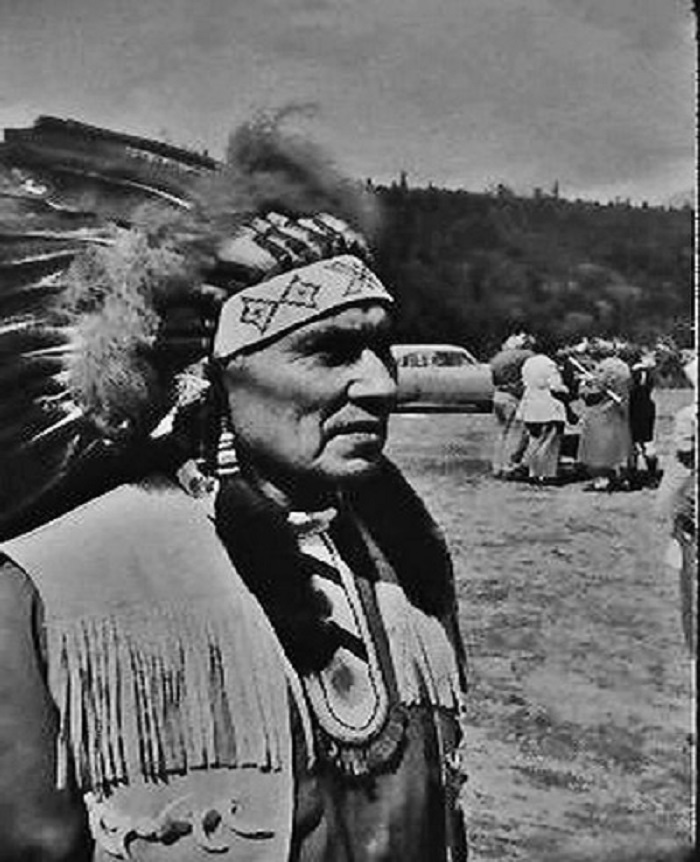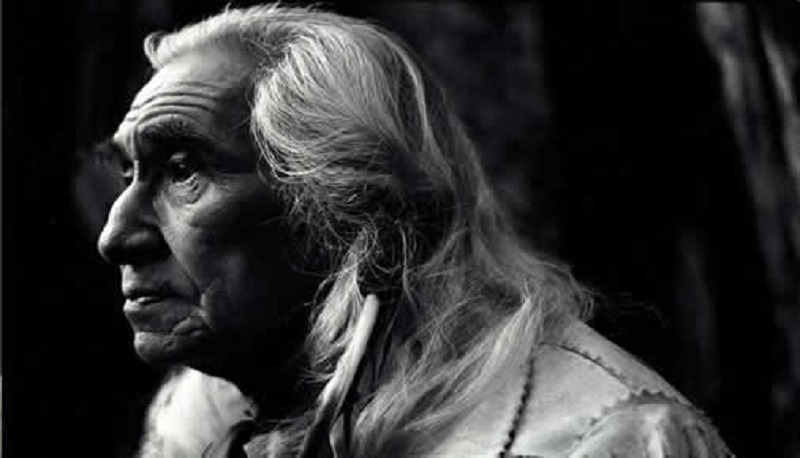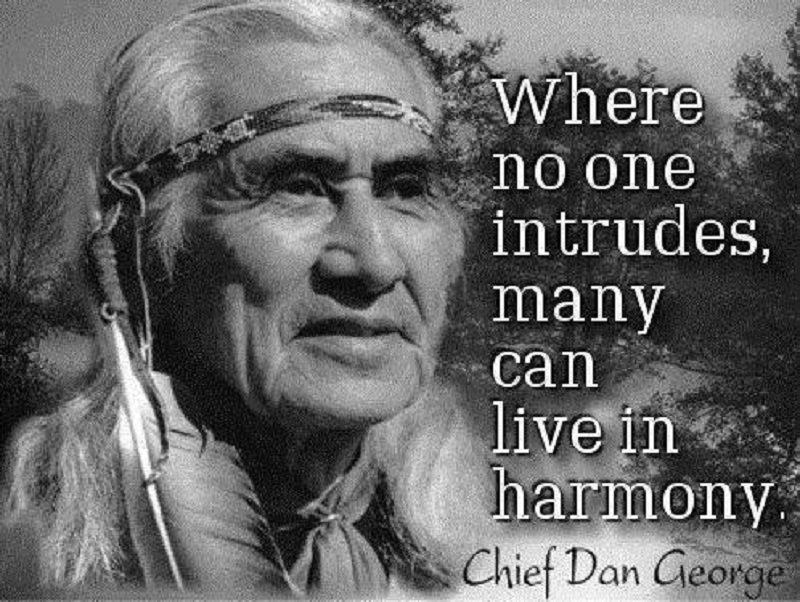Chief Dan George (1899-1981) was a prolific Indigenous actor, author, and activist from the Tsleil-Waututh Nation in British Columbia, Canada. He is widely known for his captivating performances in films such as "Little Big Man" and "The Outlaw Josey Wales". However, his contributions to Indigenous literature, cultural preservation, and social justice activism extended far beyond the realm of Hollywood. In this article, we will explore the life and times of Chief Dan George, his journey to stardom, and his significant impact on Indigenous representation and advocacy.
1. Childhood and Early Life of Chief Dan George
Early Years
Born Geswanouth Slahoot in 1899 in North Vancouver, Chief Dan George grew up immersed in his indigenous culture as a member of the Tsleil-Waututh Nation. His childhood was spent in North Vancouver, where the Salish language, customs, and traditions were still prevalent.
Family and Ancestry
Chief Dan George was born into a large family, with 10 siblings. His father, George, was a hereditary chief of the Tsleil-Waututh Nation. His mother, Susan, was from the Squamish Nation. His grandfather, Khayten, was a well-respected chief of the Tsleil-Waututh Nation.
Education and Cultural Influences
Chief Dan George did not have a formal education but was taught by his family and community members. He learned the Salish language and the traditional ways of his people. His connection to his culture and heritage influenced his life's work and his passion for advocating for Indigenous rights.
2. Journey to Performing Arts and Acting Career
Introduction to Theatre
Chief Dan George's journey into the performing arts began when he was in his mid-50s. It was during this time that he was introduced to the theatre through his involvement with the Vancouver Playhouse.
Challenges and Successes
Chief Dan George faced many challenges in his acting career, including racial stereotyping and discrimination. Despite these challenges, he landed significant roles in films such as "Little Big Man" and "The Outlaw Josey Wales," which propelled him to stardom.
Significant Roles and Performances
Chief Dan George's most influential roles included his portrayal of Old Lodge Skins in "Little Big Man" and Lone Watie in "The Outlaw Josey Wales." These roles showcased his talent and ability to bring depth and authenticity to his performances.
3. Social and Political Activism
Advocacy for Indigenous Rights
Chief Dan George was a prominent advocate for Indigenous rights and worked tirelessly to raise awareness about the issues faced by Indigenous communities. He believed that Indigenous peoples deserved equal rights, opportunities, and respect.
Participation in Protests and Movements
Chief Dan George was involved in many protests and movements, including the removal of Indigenous children from their families and the fight for Indigenous fishing rights. He used his platform as an actor and writer to raise awareness about these issues and promote positive change.
Impact on Indigenous Communities
Chief Dan George's activism and advocacy work had a significant impact on Indigenous communities. He inspired many people to stand up for their rights and take pride in their culture and heritage. His legacy continues to inspire Indigenous peoples to this day.
4. Literary Works and Contributions to Indigenous Literature
Early Writing and Poetry
Chief Dan George was a talented writer and poet. He began writing at a young age and continued throughout his life. His early works included "My Heart Soars," a poem that expresses his love for his indigenous culture and the natural world.
Publishing Career and Major Works
In 1967, Chief Dan George published his first book, "My Heart Soars." He went on to publish several more books, including "My Spirit Soars" and "You call me Chief." These books highlighted his experiences as an Indigenous person and his passion for advocating for Indigenous rights.
Legacy in Indigenous Literature
Chief Dan George's contributions to Indigenous literature have had a lasting impact on Indigenous communities. His works continue to inspire and empower Indigenous peoples to this day, and his legacy lives on as a symbol of strength and resilience.
5. Role as Chief of the Tsleil-Waututh Nation
Appointment and Leadership
In 1951, Dan George was appointed as Chief of the Tsleil-Waututh Nation, a position he held until 1963. His appointment came at a time when the Tsleil-Waututh Nation was undergoing significant changes, including the forced relocation of its people to reserves. Despite these challenges, he worked tirelessly to preserve and promote the cultural heritage of his people.
As Chief, Dan George was a respected leader who earned the trust of his community. He was known for his wisdom, compassion, and ability to bridge cultural divides. He used his position to advocate for Indigenous rights and to bring attention to the issues facing his people.
Community Development and Initiatives
During his tenure as Chief, Dan George helped to establish the first Native Friendship Centre in Vancouver, which provided support and services to Indigenous people who were facing discrimination and marginalization. He also played a key role in the establishment of the North Vancouver Indian House, a community centre that provided a safe and welcoming space for Indigenous people in the area.
Dan George was also a strong advocate for education and worked to improve access to schooling for Indigenous children. He believed that education was key to helping young people succeed and to preserving the culture and traditions of his people.
Challenges and Achievements
As Chief, Dan George faced many challenges, including the ongoing impact of colonialism and the forced relocation of his people. However, he was able to achieve significant progress in advancing the rights and well-being of his community.
One of his most significant achievements was helping to establish the Indian Homemakers Association, which provided support and training to Indigenous women. He also played a key role in challenging the discriminatory practices of the Canadian government, including fighting against the imposition of the Indian Act and the systemic mistreatment of Indigenous people in residential schools.
6. Legacy of Chief Dan George
Impact on Indigenous Culture and Art
Chief Dan George is widely recognized for his contributions to Indigenous culture and art. He was a skilled storyteller and performer, and his poetry and writing helped to bring attention to the struggles and experiences of Indigenous people. His work has been celebrated for its powerful and evocative portrayal of Indigenous life and culture.
Remembrance and Commemoration
In recognition of his contributions, Chief Dan George has been commemorated in a number of ways. The Dan George Memorial Park was established in his honour, and many Indigenous artists and writers continue to draw inspiration from his work.
Additionally, the BC Achievement Foundation has established an annual award in his honour, the Chief Dan George Cultural and Historical Award, which recognizes individuals who have made significant contributions to Indigenous culture and heritage in British Columbia.
Influence on Future Generations
Chief Dan George continues to inspire future generations of Indigenous leaders, artists, and activists. His work has helped to raise awareness of Indigenous issues and to promote greater understanding and respect for Indigenous culture and heritage. His legacy serves as a reminder of the resilience and strength of Indigenous people in the face of adversity.
7. Impact on Indigenous Representation in Hollywood
Breaking Stereotypes and Misconceptions
Chief Dan George made a significant impact on Indigenous representation in Hollywood. He was cast in a number of film and television roles throughout his career and was one of the first Indigenous actors to play a leading role in a Hollywood production.
His performances helped to challenge stereotypes and misconceptions about Indigenous people and their culture. He brought a depth and authenticity to his roles that resonated with audiences and helped to humanize Indigenous people in the eyes of the public.
Opening Doors for Indigenous Actors and Filmmakers
Chief Dan George's success in Hollywood helped to open doors for other Indigenous actors and filmmakers. His work paved the way for greater representation of Indigenous people on screen and helped to establish a foundation for Indigenous storytelling in contemporary media.
Today, Indigenous actors and filmmakers continue to build on the legacy of Chief Dan George, creating diverse and complex portrayals of Indigenous people that challenge and enrich mainstream media.
Contribution to Diversity and Inclusion in Media
Chief Dan George's impact on Indigenous representation in Hollywood also contributed to a broader movement towards greater diversity and inclusion in media. His success helped to demonstrate the power and potential of underrepresented voices in storytelling and paved the way for greater diversity in entertainment and media industries.
8. Recognition and Honors Received Throughout His Life
National and International Awards
Throughout his life, Chief Dan George received numerous national and international awards for his contributions to Indigenous culture and heritage. These awards included the Order of Canada, the National Film Board of Canada's 1970 film Medallion, and the Golden Globe Award for Best Supporting Actor for his role in the film "Little Big Man".
Honorary Degrees and Appointments
Chief Dan George also received several honorary degrees, including an Honorary Doctorate of Laws from Simon Fraser University. He was also appointed as an officer of the Order of Canada in 1971.
Legacy and Remembrance
Chief Dan George's legacy continues to inspire and influence individuals around the world. His contributions to Indigenous culture, art, and representation have left a lasting impact on contemporary media and society. His work serves as a reminder of the resilience and strength of Indigenous people and the importance of preserving and celebrating Indigenous culture and heritage.In summary, Chief Dan George's life and legacy continue to inspire and influence Indigenous communities and beyond. He was a trailblazer in the entertainment industry and a passionate advocate for Indigenous rights and culture. His contributions to literature, film, and social justice activism have left a lasting impact on the world. Chief Dan George's story serves as a reminder of the power of perseverance and the importance of representation and diversity in all aspects of society.
FAQ
1. What was Chief Dan George's most famous role?
Chief Dan George is best known for his role as Old Lodge Skins in the film "Little Big Man" (1970), which earned him an Academy Award nomination for Best Supporting Actor.
2. What was Chief Dan George's contribution to literature?
Chief Dan George was a published author and poet, known for works such as "My Heart Soars" and "My Spirit Soars". He was one of the first Indigenous writers to gain national recognition in Canada and his contributions to Indigenous literature have had a lasting impact.
3. How did Chief Dan George become an activist?
Chief Dan George became an activist after witnessing the effects of colonialism and assimilation policies on Indigenous communities. He was a vocal advocate for Indigenous rights, cultural preservation, and environmental protection, and participated in numerous protests and movements throughout his life.
4. What impact did Chief Dan George have on Indigenous representation in Hollywood?
Chief Dan George helped break stereotypes and misconceptions about Indigenous people in Hollywood by portraying complex and authentic characters on screen. He also mentored and supported other Indigenous actors and filmmakers, paving the way for future generations to tell their own stories. His impact on Indigenous representation in media continues to be felt today.
________________________________________________________
Born as Geswanouth Slahoot
July 24, 1899 – September 23, 1981
Tsleil-Waututh, North Vancouver, British Columbia, Canada
(aged 82)
Born as Geswanouth Slahoot in North Vancouver, his English name was originally Dan Slaholt. The surname was changed to George when he entered a residential school at age 5. He worked at a number of different jobs, including as a longshoreman, construction worker, and school bus driver, and was band chief of the Tsleil-Waututh Nation from 1951–63 (then called the Burrard Indian Band)
http://en.wikipedia.org/wiki/Chief_Dan_George
"If you talk to the animals they will talk with you and you will know each other. If you do not talk to them you will not know them and what you do not know, you will fear. What one fears, one destroys." - Chief Dan George, Tsleil-Waututh Nation, British Columbia, Canada

Love is something you and I must have.
We must have it because our spirit feeds upon it.
We must have it because without it we become weak and faint.
Without love our self-esteem weakens.
Without it our courage fails.
Without love we can no longer look out confidently at the world...
But with love, we are creative.
With it, we march tirelessly.
With it, and with it alone, we are able to sacrifice for others.
~Chief Dan George
The time will soon be here when my grandchild will long for the cry of a loon,the flash of a salmon,the whisper of spruce needles,or the screech of an eagle.But he will not make friends with any of these creatures and when his heart aches with longing he will curse me.
Have I done all to keep the air fresh? Have I cared enough about the water? Have I left the eagle to soar in freedom? Have I done everything I could to earn my grandchildren fondness?
~ Words of Chief Dan George ~




